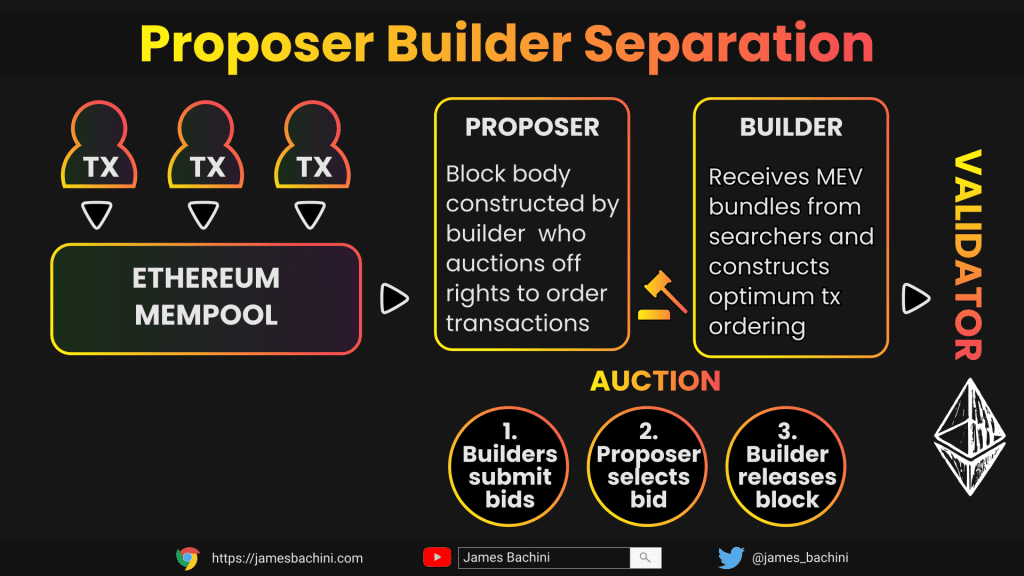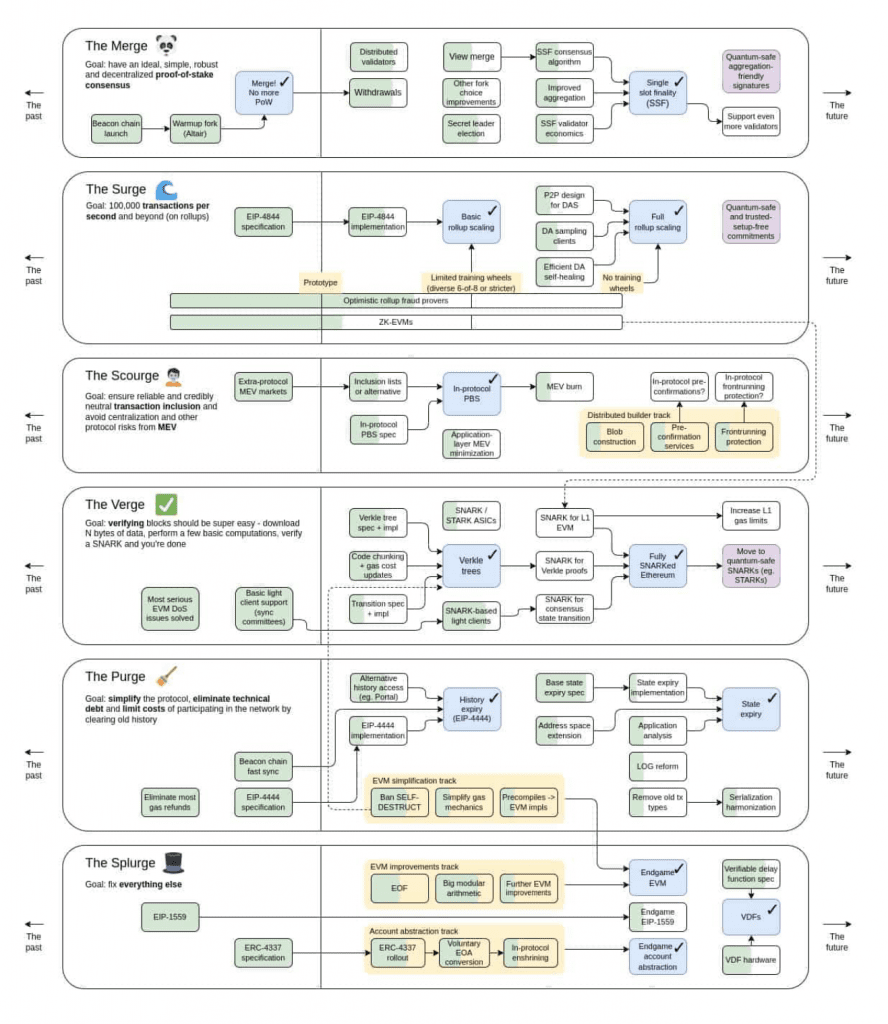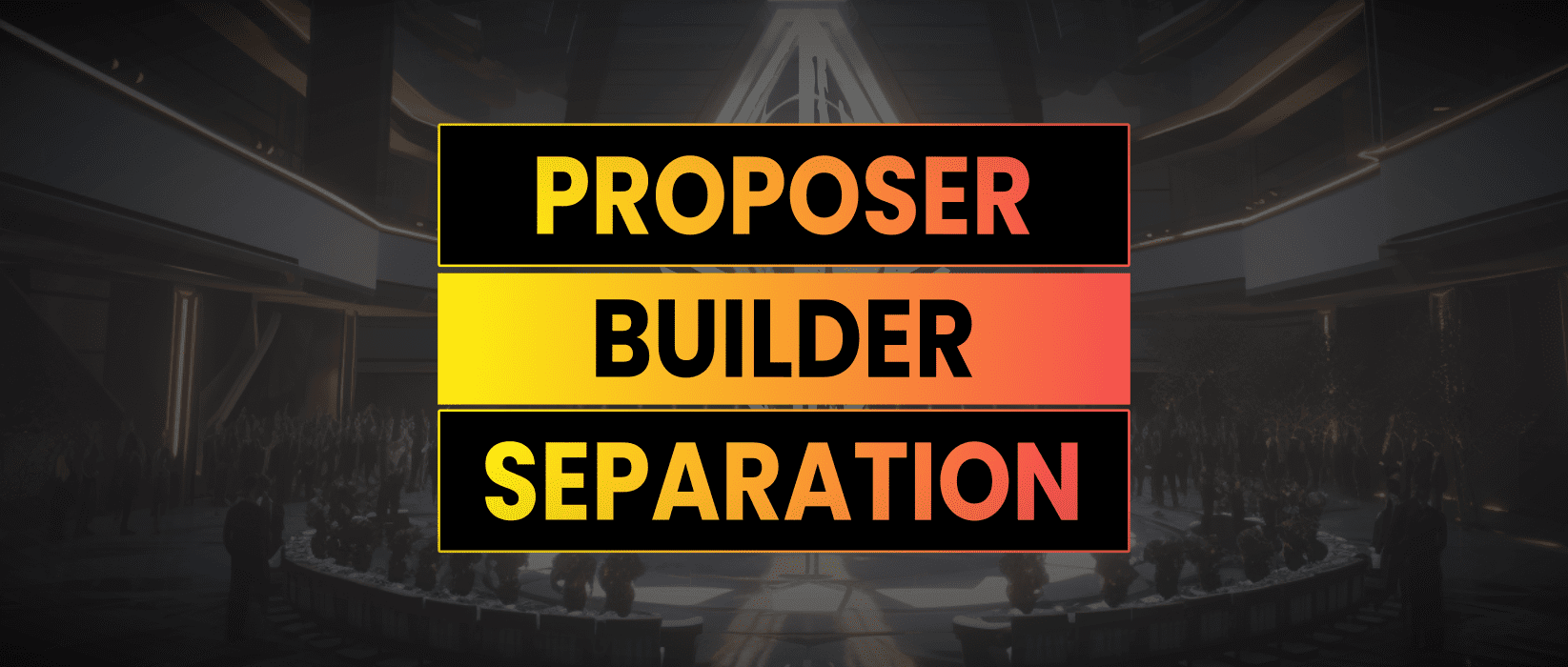Proposer Builder Separation (PBS) is an Ethereum concept that aims to reduce relay centralization and redirect a proportion of MEV to validators staking Ethereum.
In the current Ethereum network, validators are responsible for both proposing and building blocks. They are incentivised to coordinate with 3rd party MEV protocols which order the transactions in the blocks. PBS decouples the roles of block proposing and block building to create a fair, permissionless auction market for block production.
How Proposer Builder Separation Works
Validators who participate in block proposing (the process of suggesting new blocks) can outsource the task of block building (the process of assembling and ordering transactions into blocks) to specialized builders.
Proposers sell their block production rights to block builders, who pay for the privilege of choosing the transaction ordering within a block. The proposers receive MEV rewards in addition to their protocol issued rewards, while the builders compete to construct valuable blocks and retain a percentage of the MEV as profit.

ePBS | Enshrined PBS
There are two approaches to implementing PBS:
- Out of Protocol PBS Mev-boost is an existing 3rd party solution from flashbots that operates outside the Ethereum protocol and accounts for approximately 90% of Ethereum blocks produced. It relies on centralized relays to facilitate the block-production pipeline and enable access to the external block-building market for validators.
- Enshrined PBS (ePBS) Advocates for integrating PBS into the consensus layer of the Ethereum protocol itself. It aims to address the limitations and risks associated with relying on centralized relays. By implementing ePBS, relays can be eliminated, thereby aligning with Ethereum’s core values of decentralization, censorship resistance and trustlessness.
Enshrined PBS reduces the brittleness of out of protocol software and eliminates the operational costs and coordination efforts required for relay maintenance. Ethereum should not be reliant on centralized relays.
A future ePBS mechanism should be designed around protections for proposers and builders to create a permissionless, decentralized network.
The Future Of MEV
By creating a permissionless market for block production ePBS will redirect a significant amount of the value captured by the Ethereum network back to staked Ethereum holders.
It wont eliminate MEV but it will be beneficial to the network by reducing the power of centralized relays.
Focus will shift to PBS upgrade after EIP4844 is rolled out later this year. It forms part of the Scourge update which was added after the initial Ethereum 2.0 roadmap was released.



